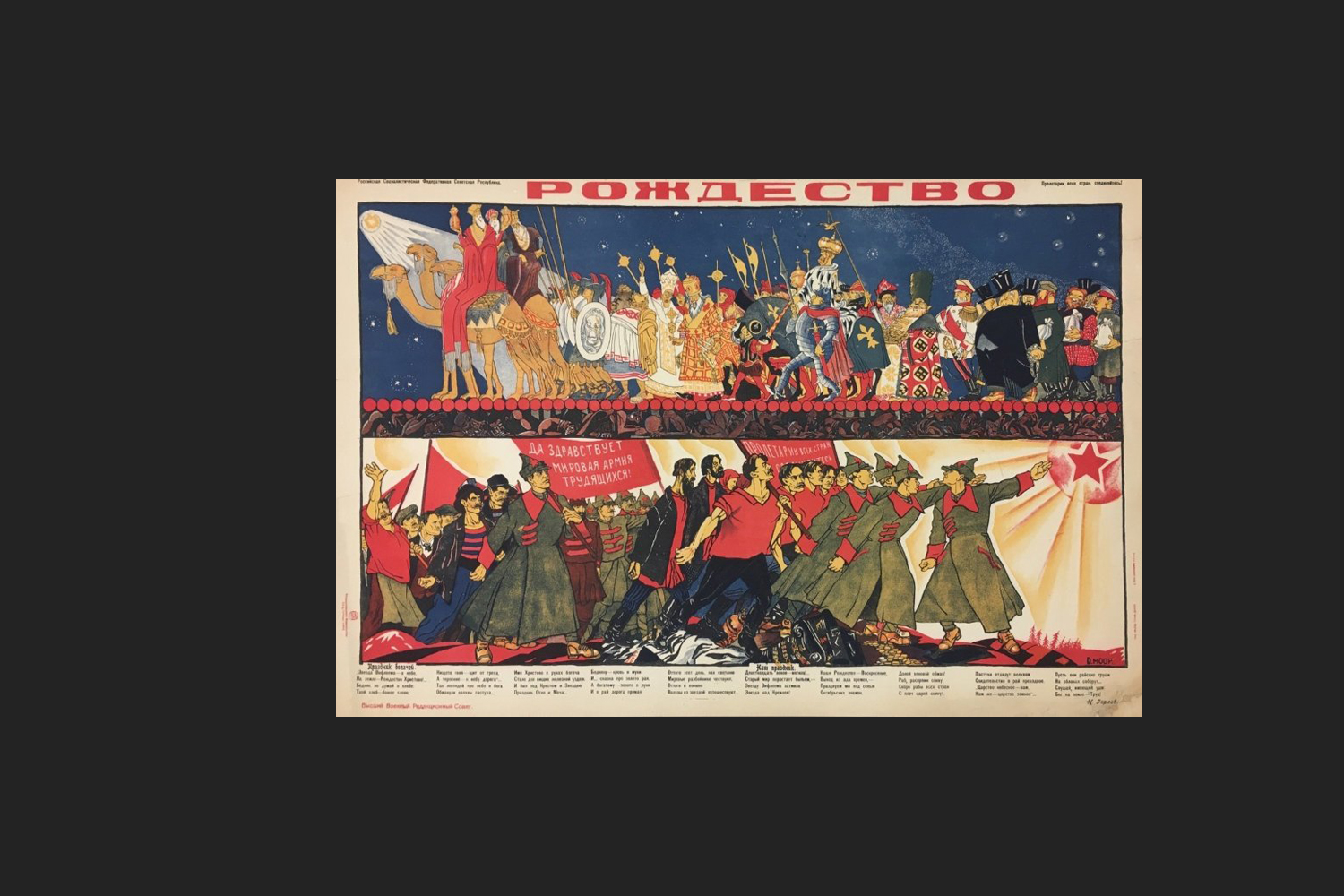
Religion was referred to as the “opium of the people” by the Soviet authorities, along with religious holidays and their associated customs. All Christmas traditions were not only abolished but replaced with artificially invented ones. For example, authentic carols were substituted with songs about communism and Lenin, the communist star replaced the Bethlehem Star on the Christmas tree, and Ded Moroz (“Grandfather Frost” – translator’s note) took the place of Saint Nicholas.
Christmas holidays were deliberately designated as working days, and in the evenings, communist officials patrolled the streets, recording the names of those celebrating Christmas. There were also instances of detentions and arrests, the most well-known being the “Arrested Carolers” case of 1972.

The arrest of carolers in Kyiv and Lviv
On 12 January, 1972, the KGB arrested participants of a Christmas carol — 19 individuals in total from Lviv and Kyiv. Among those detained were young intellectuals and artists, including poet Vasyl Stus, literary critic Ivan Svitlychnyi, publicist Viacheslav Chornovil, poetess Iryna Stasiv-Kalynets, artist Stefania Shabatura, and philosopher Yevhen Sverstiuk.

Ukrainian writer Ihor Kalynets recalls:
“Those who were meant to be arrested (whether the caroling took place or not) were already on the lists. The investigations had largely been conducted for each of them, and they were all set to be arrested anyway. Many of us were not dissidents. We were Ukrainian patriots.”

Christmas ban in Kharkiv
Despite the persecution of carolers, by the late 1980s, a branch of the Ukrainian Youth Association emerged in Kharkiv, establishing an annual tradition of organising Vertep (Nativity) plays and caroling for local children and youth.

Photo: Yevhenii Sedniev.
Kostiantyn Cheremskyi, a counselor with the Ukrainian Youth Association, recalls going caroling from apartment to apartment in 1982–83. At the time, communist authorities set up “parent patrols” at building entrances to stop anyone from entering. Despite the ongoing repression, the tradition of caroling in Kharkiv persisted:
“We tried not to photograph the Vertep plays because, unfortunately, everything was being monitored and watched. Unlike in puppet nativity scenes, everyone was dressed up in handmade costumes or improvisatory clothing, and performed plays for themselves. They passed this tradition on to our group. We enriched it, modernized it, and began actively implementing it in life.”

Photo: Oleksandr Khomenko.
The forbidden caroling in Kryvorivnia
During the Soviet regime, both the church and caroling were prohibited in the Carpathian village of Kryvorivnia. The Hutsuls (Carpathian highlanders) secretly preserved their traditions, caroling in the remote upper areas of the village to avoid detection, as punishment from the authorities was a real threat. In urban areas, carol lyrics were sometimes altered to replace Jesus with Lenin, as the KGB actively targeted carolers.

Photo: Dmytro Bartosh.
The participant of caroling in Kryvorivnia, Ivan Zelenchuk, speaks about these traditions:
“The highlanders danced near our church, and some people from Kryvorivnia joined them, too. They danced near the church almost every year. And it was something, you know, when you heard that dance, it truly struck a chord in your soul. There was nothing criminal about it, nothing anti-government in those carols.”

The dispersal of Malanka in Beleluia
In the Halych village of Beleluia in the west of Ukraine, as in nearby regions, the celebration of Malanka (a traditional Ukrainian folk New Year celebration, involving vibrant costumes, merrymaking, often featuring masked performances and role-playing – ed.) was banned in the latter part of the 20th century. Villagers recall that even when the police arrived to break up the Malanka festivities, the head of the local cultural club, Mykhailo Herlib, encouraged the costumed performers to stand their ground and carry on with the celebration. Ultimately, they succeeded in upholding their traditions, though Herlib was later summoned by Soviet officials for questioning and required to submit written explanations.

Photo: Artem Halkin.
This is how Mykhailo Herlib, Director of the cultural center at the People’s House in Beleluia, describes these events:
“I was part of the Malanka festivities at the time, and both the KGB and the police summoned me. They didn’t like it when people gathered or united. They disliked such traditions. I had to spend a month going to the KGB, writing explanations, and asserting in writing that the Malanka festivities had no religious content whatsoever.”

